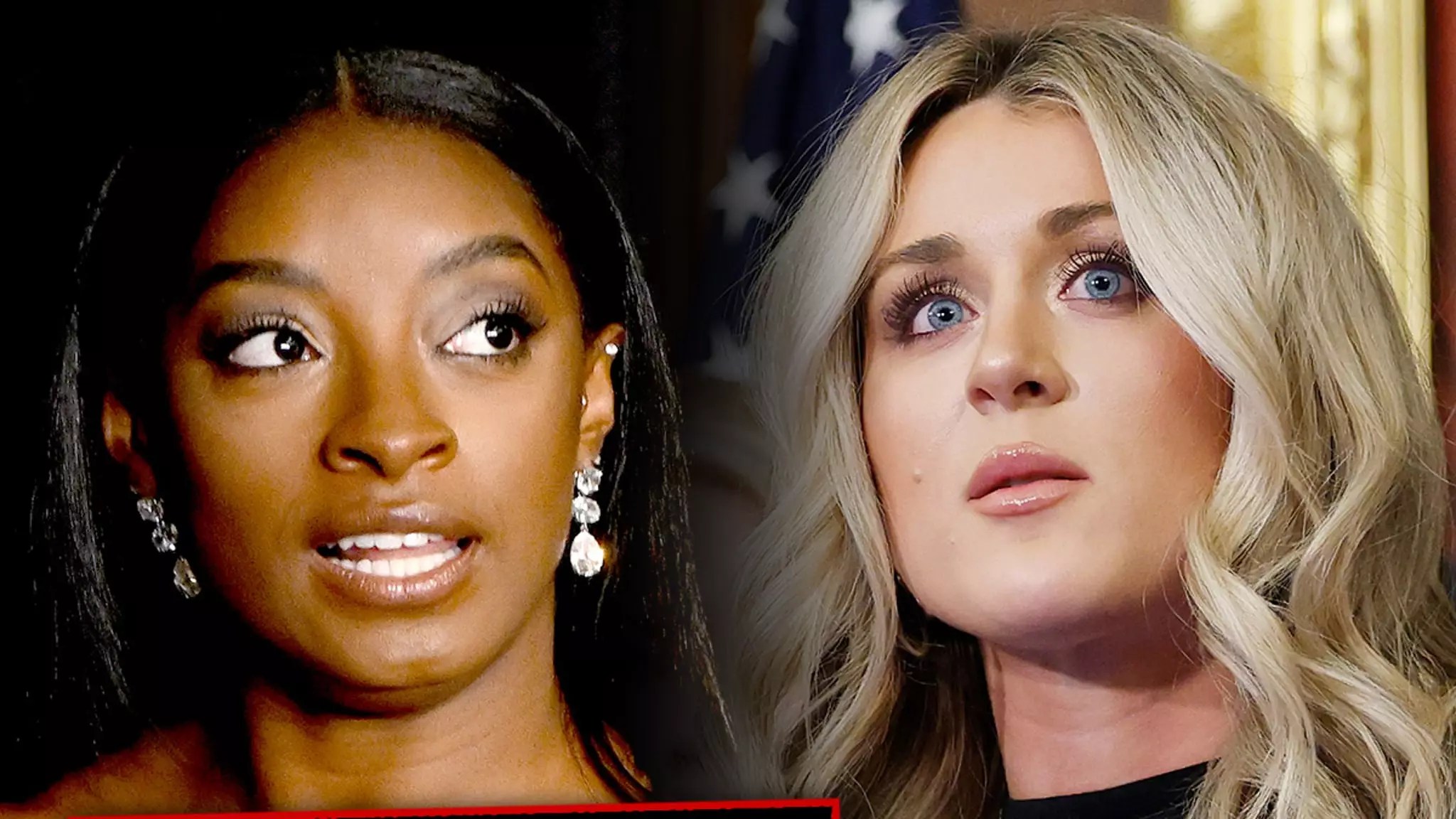In an era where sports often serve as a microcosm of larger societal debates, a recent exchange between Olympic champion Simone Biles and conservative activist Riley Gaines ignited a firestorm on social media. At the heart of their feud lies the contentious issue of transgender athletes competing in women’s sports—a debate that has polarized opinions across the United States. The backdrop for this clash was a seemingly innocuous moment: a photograph celebrating a high school sports team’s championship, which featured a trans athlete. But as many social media skirmishes go, it quickly escalated, providing invaluable insight into the complexities and emotions underlying the conversation.
Simone Biles’ Outspoken Defense
Seven-time Olympic gold medalist Simone Biles is no stranger to using her platform to advocate for inclusivity and fairness in sports. Her reaction to Riley Gaines’ derogatory comments was pointed and passionate. Biles labeled Gaines as “sick” for her dismissive remarks regarding a trans player’s contributions to her team’s victory. Critics of Gaines seized the opportunity to underline the importance of attempting to understand and support diverse identities in sports rather than demonizing them. Biles’ response was not merely an emotional reaction; it demonstrated her desire for a sporting environment where all athletes, regardless of gender identity, feel validated and respected.
The defining element of Biles’ critique was the concept of “sore loser,” which she used to characterize Gaines’s attitude towards the situation. This phrase alone highlights a broader debate surrounding what constitutes sportsmanship and respect in competition. Rather than accept the evolving nature of athletics, Gaines’s retort appears to cling to more traditional notions of gender divisions in sports. Biles challenged this paradigm, advocating for progress based on empathy and inclusivity.
Riley Gaines’ Resolute Stance
Gaines, on the other hand, took a firm stand against the idea of transgender participation in women’s sports. Her reactions ranged from labeling herself as an uncompromising protector of women’s sports to expressing disappointment in Biles’ rebuttal. She emphasized that women should not be responsible for accommodating male athletes in their competitive spaces. This insistence encapsulates the emotional weight of her convictions—driven not just by personal experience, but also by a broader belief that associating men with women’s sports undermines the hard-won achievements of female athletes.
While Gaines expressed her views with passion, her comments also carried an underlying current of exclusion. Notably, some observers have raised questions about her framing of the issue. By centering her argument on the idea of “stealing championships,” she risks eclipsing the nuanced and varied experiences of those within the LGBTQ+ community, particularly given the realities that many trans athletes face in their own journeys. The weight of her words suggests an unwillingness to entertain compromise, which diminishes the potential for understanding across ideological divides.
The Role of Social Media in Athletic Debates
The recent exchange between Biles and Gaines highlights a growing trend where social media serves as the battleground for cultural and ideological conflicts. Platforms like X (formerly Twitter) provide a stage not only for public figures to voice polarizing opinions but also for supporters and critics alike to engage in rapid exchanges that can fuel further discord. The ephemeral nature of these interactions, combined with the emotional volatility inherent in topics such as gender and identity, can often prevent productive discourse.
Moreover, the discourse surrounding Biles and Gaines raises critical questions about the responsibilities of athletes as public figures. Both women are admired for their accomplishments, yet they also recognize the weight of their words. Their dialogue illustrates that advocacy in the realm of sports can become a double-edged sword—while amplifying one’s beliefs, it also has the potential to alienate entire groups of people.
The Implications for Future of Sports
This ongoing debate represents more than just a clash of individual perspectives; it speaks to the future of sports themselves. Should sports adapt to becoming more inclusive, or preserve existing categories based on biological differences? Simone Biles’ advocacy suggests a pathway toward a more integrated approach where respect and acknowledgment of diverse identities play a fundamental role. Meanwhile, Riley Gaines’ steadfastness represents a counter-narrative advocating for the preservation of traditional separations within athletic competition.
The consequences of this exchange are far-reaching, extending beyond their personal narratives and into the structures that govern competitive sports. As athletes and advocates continue to bear the torch for their respective causes, society must grapple with the inherent complexities of gender, identity, and inclusivity in the sporting realm.







Leave a Reply